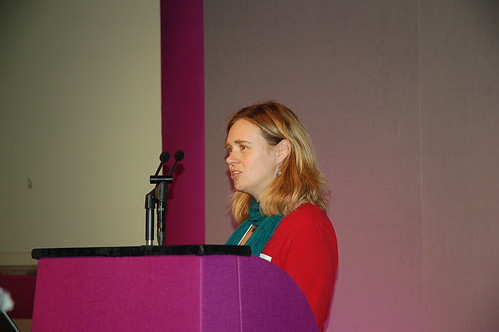 As well as teaching Spanish at Whitehouse Common Primary, I am also often asked to speak at conferences about Primary Languages and how I teach using ICT.
As well as teaching Spanish at Whitehouse Common Primary, I am also often asked to speak at conferences about Primary Languages and how I teach using ICT.
I really enjoy speaking (as those who have met me already know!) and see it as a way of sharing my passion and enthusiasm with others. Just as I use my blog as a way to share with others, when I’m presenting I’m passing on experiences and ideas that I have gained over time.
Over the next three posts I’ll be sharing details of three conferences at which I am speaking over the next term. Perhaps one of them will attract your attention.







